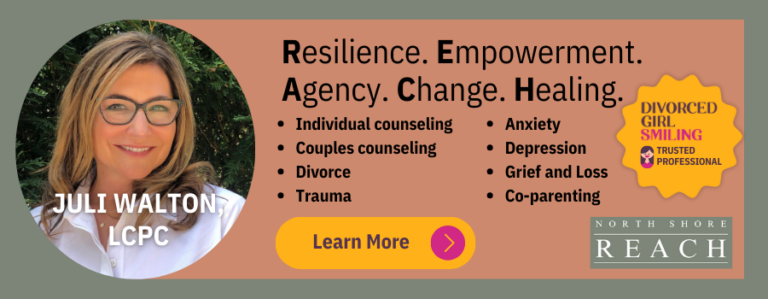Can a therapist be a mediator? You bet! Being both a Licensed Clinical Therapist as well as a Certified Divorce Mediator has allowed me to understand and highlight the importance of several qualities which are necessary in both professional roles. Whether I am working with an individual or couple in therapy, or a couple navigating divorce, both situations require an abundance of empathy and support, and a professional and neutral manner which makes them feel safe and that they are my priority.
Both therapy and mediation play a key role in supporting individuals and couples in navigating challenging, life changing situations. My expertise in both areas provides my clients with the comfort of knowing they are in well trained company to guide them through conflict resolution, an empathic and holistic point of view, and an empowering journey.
My role as a therapist
It is my job and my privilege to provide a safe and confidential space for individuals to express their emotions, helping them cope with stress, anxiety, and other mental health challenges. This emotional support enhances their ability for personal growth, assisting them in self-discovery and personal development, fostering a deeper understanding of themselves and their relationships.
While on this personal journey in therapy, clients often acquire coping skills and strategies to manage stress, improve communication, and navigate life’s challenges more effectively. The impact of our work together in therapy helps clients overcome mental health issues, which can be incredibly rewarding and empowering as they see and experience these positive changes in their lives.
Additionally, with a commitment to diverse specialties, we can work on specific parts of their lives which they never realized was part of the change they needed to see unfold. Being a licensed clinician allows for a dynamic career with a commitment to professional development and innovative approaches so that I can continue to provide a higher standard of care.
My role as a Divorce Mediator
Divorce mediation requires me to be a third party neutral, who facilitates the process of helping couples come to agreements to draft a divorce settlement in a peaceful, amicable way, and learn to communicate and co-parent effectively after divorce. The process involves me promoting awareness through collaboration, encouraging the insight of the needs of the entire family, and helping both parties gain clarity so that they can make the best possible decisions. My goal is to offer my mediation clients a faster, less expensive, and more effective divorce solution, while receiving the emotional support I can provide.
As with Therapy, Mediation empowers individuals to make decisions about their future, giving them more control over the outcome. This feeling of being empowered and in control typically does not exist when the process of divorce begins, yet by helping clients work through and understand their interests and needs, they are able to feel support and get clarity they may not have been able to achieve otherwise, building the strength and resiliency that comes as a benefit of utilizing my therapeutic tools.
The complementary skill set of being both a clinically trained therapist and a certified mediator has proven beneficial to clients who are seeking mediation, yet still not accepting of the reality of their divorce. There is always one member of the couple more resistant to the idea of divorce, and it is in these scenarios where my Therapeutic skills are most needed.
Most clients come to Mediation with an understanding that the process will be significantly quicker and far less costly. Those two factors do not touch on the pain and loss these clients feel, and having a Mediator who is also a trained therapist allows us to use a framework that attends to painful and acute feelings, while integrating the necessity of finalizing the court documents.
It is a powerful and rare dynamic, and one that is often overlooked and missed by legal professionals who do not have training with a clinical lens. My experience in this setting has been validating and positive for clients who often come in feeling very lost, and uncertain about life after divorce. With my Clinical skills and Mediation training I can provide a roadmap of the necessities of splitting up their family, as well as the personal steps they can hope to achieve emotionally.
As a professional who is committed to helping others, it is imperative that my skills are honed to recognize needs in challenging times, to remain ethical, and empathic, and use my own values to make a positive impact in both helping couples find resolutions, as well as peace in their life.
Both professions require strong interpersonal skills, keen listening skills, and an engaging nature to provide empathy where there is a need for an emotional response to a practical issue. As a therapist and as a Mediator, my priority is always the client, my goals are always their best interest in the long run, and my objective is to provide them with a set of skills and feeling of empowerment to allow them to live a more fulfilling and clear future.
So, can a therapist be a mediator? I sure am, and I love it.
Being both a Mediator and Therapist is beneficial to my clients, allowing me to transfer my skills depending on the priority, the challenges, and each individual client’s situation. While I understand the needs are different for Clinical patients and for Divorcing clients, I have witnessed and utilized the undeniable value which my dual skill set provides when it comes to being trained to recognize the extreme emotional load, being prepared in both roles, and able to support clients emotionally in a Mediation setting.

Juli Walton is a Licensed Clinical Professional Counselor (LCPC) committed to supporting individuals, couples, and families in navigating diverse, complex issues. She has extensive experience working with adolescents and adults who struggle with anxiety, depression, trauma, abuse, family conflicts, and transitional life events related to professional challenges, grief, loss, unexpected stressors, and more.
While her specialties are multi-faceted, she is a trained Divorce Therapist and certified Divorce Mediator, credentials for which she earned from Northwestern University, with significant experience supporting clients through the separation and divorce processes. Her related expertise includes mediation, co-parenting, dysfunctional family patterns, and discernment counseling.
Juli believes that, above all else, the work starts with building a safe and non-judgmental relationship, where clients feel empowered to realize their potential. Through her empathetic nature, she provides a supportive space where clients can grow, change, and heal. Juli is intentional in her goal of helping clients create a life that makes them happy.
Juli sees individuals, couples, and families, and aims to help people dealing with divorce. Her treatment specialities include: separation, divorce, post-divorce, discernment counseling, anxiety, depression, grief and loss, trauma, abuse, family conflict, life transitions, mediation and co-parenting. Learn more and/or schedule a complimentary 15-minute consultation here.



















